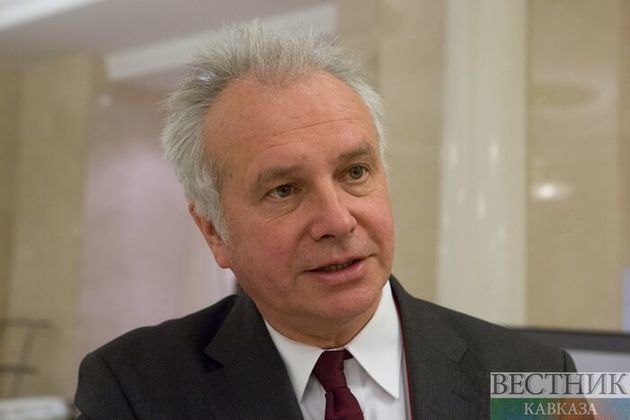At the end of 2021, Russia sent its proposals on security guarantees to the US and NATO. The draft documents containing many points, among other things, require the refusal to include Ukraine in NATO, further non-expansion of the military bloc, non-deployment of US military infrastructure in post-Soviet countries and American offensive missiles in Eastern Europe.
Within the framework of these proposals, negotiations between representatives of the Russian and US Foreign Ministries have been taking place in Geneva since mid-January. A meeting of the Russia-NATO Council was held in Brussels, and consultations were held in Vienna within the framework of the OSCE. So far, discussions have not yielded a positive outcome. The US and NATO countries reject Moscow’s demands that Ukraine not be included in the North Atlantic Alliance.
The United States and NATO are only developing their response, but have already made it clear that they will not make concessions unilaterally. "The key point here is that any steps we take will not be concessions - they will have to be taken on a reciprocal basis. This means that Russia will also have to do something in order to ensure our security", the State Department spokesperson Ned Price said at a briefing.
The European Union also intends to fully participate in the preparation of the US and NATO's response to Russia's proposals. This intention was outlined by the head of one of the leaders of European integration - the President of France. Emmanuel Macron held discussions via videoconference hosted by US President Joseph Biden. It was attended by European Commission President Ursula von der Leyen, European Council President Charles Michel, NATO Secretary General Jens Stoltenberg, as well as the leaders of Germany, the United Kingdom, Italy and Poland.
"To his partners, the President of the Republic (Macron - ed.) declared the importance of the European Union being able to fully participate in the preparation of the response to the Russian proposals of last December", the Elysee Palace said in a communiqué.
German political scientist Alexander Rahr believes that in order to ease tensions between Russia and NATO, Europe's response should include three points. The first is readiness to continue the dialogue.
"All these questions that Russia has raised should be discussed in a confidential and constructive atmosphere focused on results. Let's negotiate. This should be the first answer - the West does not refuse negotiations", he said in an interview with "Vestnik Kavkaza".
The second point is that the West needs to revive negotiations on the concept of Europe from Lisbon to Vladivostok. "Sooner or later, we must resume the old negotiations on the concept of Europe from Lisbon to Vladivostok, where Russia, Ukraine and Western countries, as well as NATO and the CSTO, will exist in one space. Thus, there will be lasting peace in relation to each other, and wars will be excluded. In fact, this is the revival of the OSCE", the German political scientist noted.
The third point should imply a freeze on Ukraine’s membership in NATO. "France and Germany should tell Russia that their veto, which they imposed in 2008 on Ukraine's entry into NATO, is valid, that Ukraine cannot now join NATO under the Washington Treaty rules. It is a fragmented country, it has a conflict with Russia. There is no unity on this issue in NATO. Ukraine cannot join NATO. De facto or de jure, the West will not give up that Ukraine may someday become a member of NATO, but the West can put it more diplomatically, as "we may come to that," Rahr added.
While the West is considering its proposals, the US and the EU continue to threaten Russia. In the event of its invasion of Ukraine, the countries of the bloc are ready to accept an unprecedented package of sanctions. This statement was made on behalf of NATO by British Prime Minister Boris Johnson after a meeting with the leaders of the United States, Italy, Poland, France, Germany, the European Union and NATO. The EU and the US are not limited to threats alone. The day before, the countries of Western Europe began to transfer their aviation, infantry and navy to the NATO countries of Eastern Europe and the Mediterranean, such as Bulgaria and Romania.






